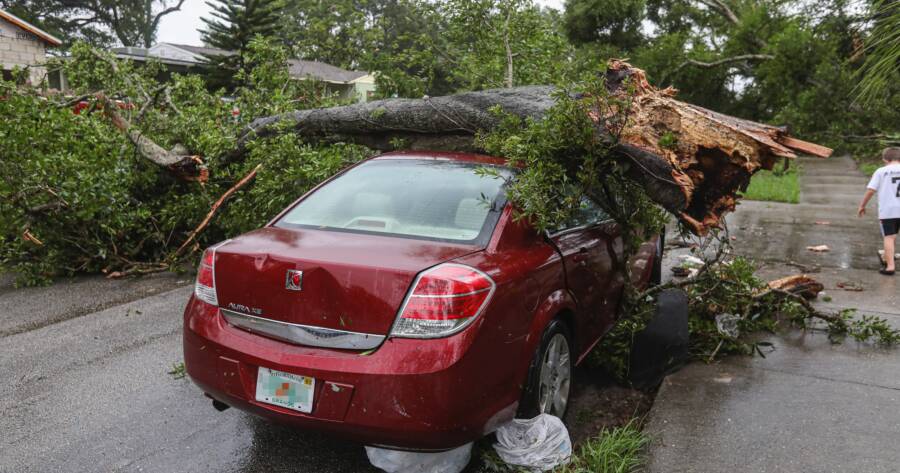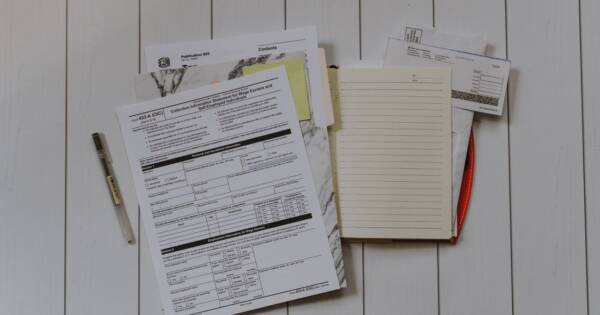Property damage occurs when someone or something causes damage to your property. It can leave you facing major repairs or costly replacements. You may have a right to seek compensation for those losses. Your losses might be covered by insurance — yours or someone else’s. And if not, you may still have some right to seek compensation if someone else caused the damage. Understand property damage and what you can do about it.
What Is Property Damage?
Property damage occurs when your property is damaged – it’s a pretty simple concept. Here are a few examples of property damage:
- The roof of a home is ripped off due to winds during severe weather
- Your car is damaged in a collision on the road
- A tree falls on your shed or truck
What Causes Property Damage?
Property damage can be caused by a variety of actions, forces and people. Here are a few common causes of property damage:
- Acts of God. This cause is used to describe damage that occurs when no person was involved or at fault. A tree falling on the truck or wind damage to the roof would both be considered an act of God.
- Actions of others. If someone was speeding down the road and hit you because of that, or they failed to stop at a traffic light and caused a collision, that might mean the property damage was their fault because of actions they took. Action by others can also occur when they are trespassing on your property.
- Negligence. In some cases, property damage can be deemed the fault of someone because they did not take an action that they might reasonably be expected to take. For example, if a plumber doesn’t seal pipes correctly when making a repair and that leads to interior flooding and property damage, the plumber’s negligence might be at fault.
Who Pays for Property Damage?
How the expense for property damage is covered depends on a variety of factors, including what caused the property damage, whether you have an applicable insurance policy and whether you can make a compelling case for the damage being someone’s fault.
- Property damage caused by an act of God may be covered under your insurance policy. Both auto insurance and homeowner’s insurance have these types of coverage options, but not every policy is the same. Read the fine print to find out what is covered under yours.
- If someone else caused damage, either through their actions or through negligence, their insurance or they might be obligated to pay for the damages. Again, it depends on the situation, and you might want to seek assistance from an attorney to understand how best to seek compensation.
- In some cases, someone might have caused damage to your property but they don’t have insurance that covers it. For example, if someone causes a collision and they don’t have insurance or don’t have enough insurance coverage to pay for the damages. You might be able to file a claim to get reimbursed for damages under your own uninsured motorists coverage.
What Is a Property Damage Claim?
As you can see, property damage claims and figuring out who will pay for the damages is not a simple topic. In most cases, however, you begin the process by filing a property damage claim with the appropriate insurance companies.
If you experience damage, you should call your insurance company immediately to let them know and find out what the process is for filing a claim. A claim notifies the insurance company that a damage-causing event has occurred. It also puts in motion all of the processes required for compensation, which can include inspections, valuations and filing with other insurance companies involved.
However, filing a property damage claim doesn’t mean you’ll automatically be paid for all your damages. In some cases, you may want to get a lawyer involved to ensure that your claim is adjudicated fully and that you get fair and full compensation. An attorney can help you understand what the next steps are and whether you might need to escalate to legal action to get appropriate compensation.
Tips for Dealing with Various Types of Property Damage Claims
Property damage situations can be simple or complex, but here are a few tips for dealing with them to help ensure a more satisfactory outcome.
- Don’t sign things you don’t understand or that you don’t think are fair. That includes endorsing a check you don’t think appropriately pays for your damages. If you endorse and cash a check from your insurance company, you could be inadvertently agreeing to a settlement that removes your ability to seek further compensation.
- Do ensure you understand your policy. Look at the original policy documentation for details on what coverage you have and ask your broker to explain it to you. If you’re still not sure about your options, consider reaching out to a personal injury attorney for a free consultation.
- Don’t assume you have to go with a specific contractor or repair shop because your insurance says so. In many states, you have a right to choose who provides those services.
- Do take measures to protect property as much as possible. For example, if your roof is damaged and you are able to, you should put a tarp or other covering on it to protect the interior of your home from continued damage. If you don’t take this type of step when you can, you may find that the insurance company has an argument for limiting what damage it covers.
- Don’t think you have to face all of these issues alone. If you don’t think you’re being treated fairly, consider consulting with a lawyer experienced in property damage claims.






